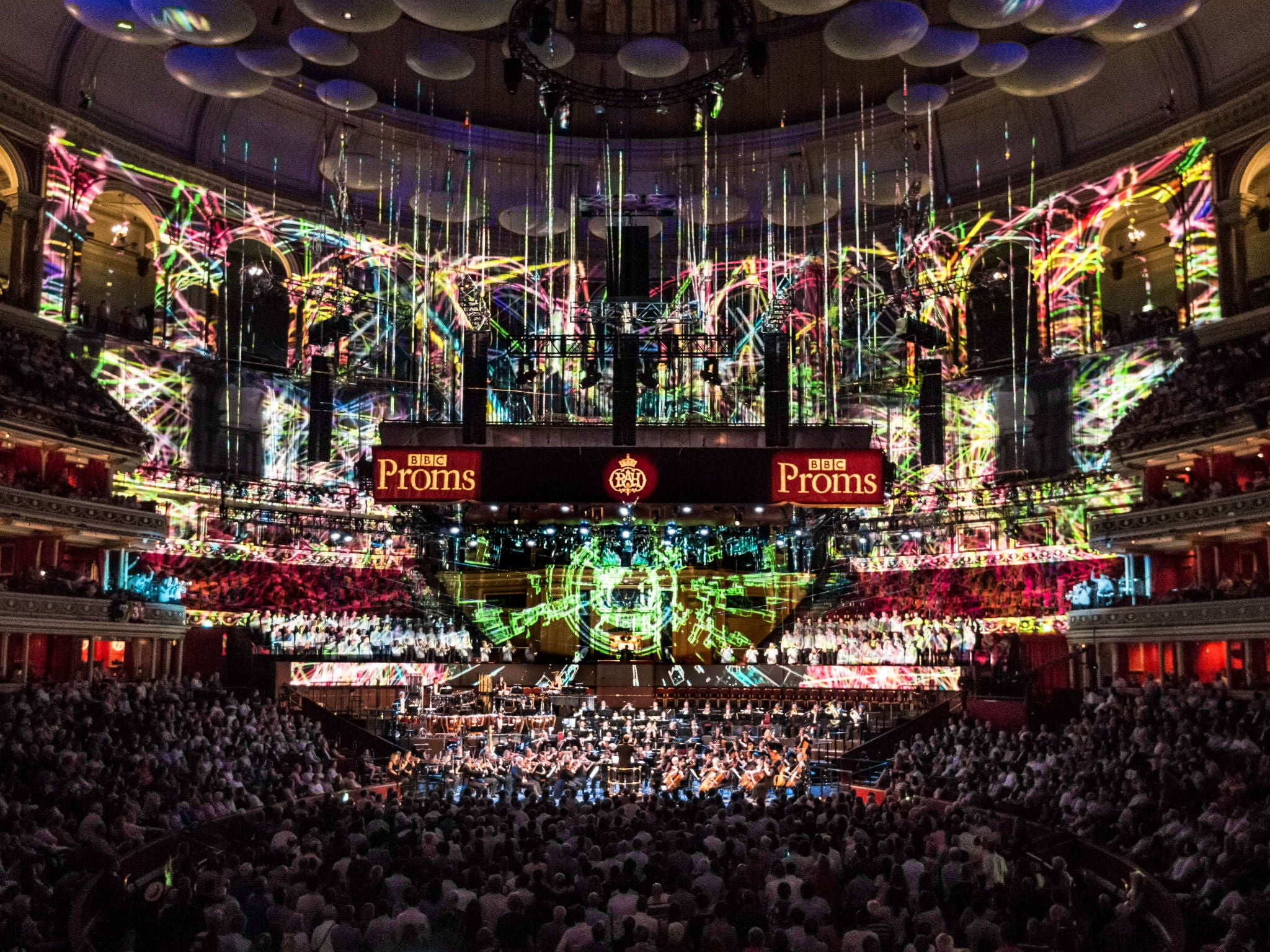Prom 1, Royal Albert Hall, London, review: Five Telegrams is an extraordinary work by Anna Meredith
A new piece inspired by multiple-choice telegrams sent home by First World War soldiers is wildly ambitious, but distracting visuals from 59 Productions hamper its effect

It was appropriate that the first Prom this year should open with a tribute to Oliver Knussen, who died last week; his Flourish with Fireworks Opus 22 began proceedings. As Britain’s leading symphonic composer, he leaves behind a small but perfectly-formed oeuvre, and this miniature saw him at his most engaging and accessible: its bright and intricately organised sound world was lovingly rendered by the BBC Symphony Orchestra under Sakari Oramo’s baton.
But its effect was to make Vaughan Williams’s Toward the Unknown Region seem even more bombastic than it is, in contrast to Walt Whitman’s laconic poem about death of which it is the choral setting. Holst’s The Planets regalvanised the atmosphere, with each section brilliantly characterised.
The pièce de résistance was the premiere of an extraordinary new work by Anna Meredith and 59 Productions entitled Five Telegrams. Their poignant inspiration was the multiple-choice postcard which soldiers in the First World War trenches could fill in and send home: ‘I am quite well/ I have been admitted into hospital/I have received no letter from you…’
While 59 Productions manically projected illuminations round the auditorium, Meredith’s score sought to reflect five modes of communication, from propaganda, redaction, and codes, to news of the cessation of hostilities.
The projections were not always readable in terms of the atmosphere they were meant to conjure up, while Meredith’s musical intention for each of her four-minute pieces was wildly over-ambitious: for example, there was no way the ear could follow the complex rationale behind the making and breaking of codes: "independent mechanical systems overlap, musically dramatizing the search for sense in patterns and how one piece of information can unlock and clarify all the information leading to that point."
What one heard there – with the eyes shut – was fortissimo repetition at a frenetic pace; with eyes open, the industrial-strength audio-visual effect was mere head-banging confusion.
But one had to admire the precision of the performance by 26 young brass and percussion players of the Proms Youth Ensemble, who added their exhilarating sounds to those of National Youth Choir. Each of this work’s five sections was a clearly defined sound world: it would be very interesting to listen to these, provided they were shorn of those distracting, superfluous, and probably rather expensive, visuals.
Join our commenting forum
Join thought-provoking conversations, follow other Independent readers and see their replies
Comments